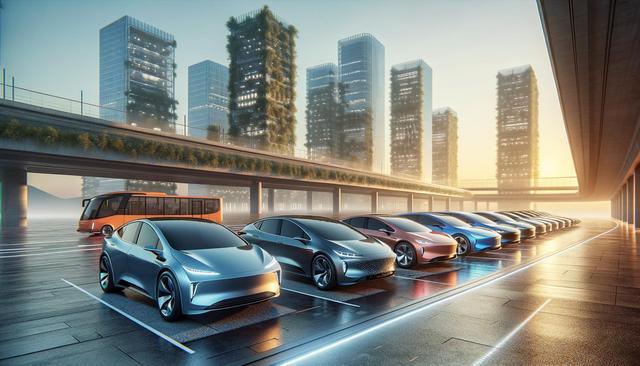
Driving Toward the Future: Exploring Hybrid Cars
What Are Hybrid Cars?
Hybrid cars combine an internal combustion engine with an electric motor to power the vehicle. This dual power system allows hybrids to switch between gasoline and electric power or use both simultaneously, depending on the driving conditions. The main aim of hybrid technology is to reduce fuel consumption and lower emissions, making them a practical choice for eco-conscious consumers. Over the years, advancements in battery technology and engine design have enhanced the performance and reliability of hybrid vehicles, making them more appealing than ever.
There are several types of hybrid systems, including:
- Full hybrids: These can run on just the engine, the electric motor, or a combination of both.
- Mild hybrids: These use the electric motor to assist the engine but cannot run on electricity alone.
- Plug-in hybrids: These have larger batteries that can be recharged via an external power source, allowing for extended electric-only driving.
Each of these systems offers unique advantages depending on driving habits and environmental goals. For those considering a switch, it’s worth exploring how these options align with your lifestyle. For more details, visit https://go.jexli.com/postback?clickId={click_id}&payout={epayout}&p2={campaign}.
Environmental and Economic Benefits
One of the most compelling reasons to consider a hybrid car is its reduced environmental impact. Hybrid vehicles emit fewer greenhouse gases compared to conventional gas-powered vehicles, contributing to cleaner air and a smaller carbon footprint. This is especially important in urban areas where air quality can be a significant concern.
In addition to environmental perks, hybrid cars often come with economic advantages:
- Lower fuel costs due to improved mileage.
- Tax incentives and rebates offered in many regions.
- Reduced maintenance costs over time, especially for plug-in hybrids with improved battery efficiency.
These factors combine to make hybrids a smart financial decision in the long run. Many drivers find that the initial investment is offset by long-term savings, especially as fuel prices fluctuate. To explore models that fit your needs, check options at https://go.jexli.com/postback?clickId={click_id}&payout={epayout}&p2={campaign}.
Performance and Driving Experience
Hybrid vehicles are no longer just about fuel efficiency—they also offer an enjoyable driving experience. Modern hybrids have seen significant improvements in acceleration, handling, and overall ride quality. Thanks to regenerative braking systems and seamless transitions between power sources, drivers can expect a smooth and responsive ride.
Some performance features commonly found in newer hybrid models include:
- Instant torque from electric motors for quick starts.
- Smart energy management systems for optimized performance.
- Multiple driving modes (eco, sport, electric-only) for different scenarios.
These enhancements make hybrid cars suitable not only for city commuting but also for highway driving and longer road trips. For a wide selection of hybrid options, visit https://go.jexli.com/postback?clickId={click_id}&payout={epayout}&p2={campaign}.
Challenges and Considerations
While hybrid cars offer many benefits, it’s important to consider potential drawbacks. For instance, the cost of replacing high-voltage batteries can be significant, although battery warranties often cover many years or miles. Additionally, while fuel efficiency is generally high, results may vary based on driving habits and conditions.
Other considerations include:
- Charging infrastructure for plug-in hybrids may not be readily available in all areas.
- Hybrids may not perform as well in very cold climates where battery efficiency drops.
- Initial purchase price can be higher than traditional vehicles.
Despite these challenges, many drivers find the trade-offs acceptable given the long-term savings and environmental benefits. It’s important to assess your own driving patterns and regional infrastructure before making a decision. To learn more about hybrid solutions tailored to your location, visit https://go.jexli.com/postback?clickId={click_id}&payout={epayout}&p2={campaign}.
The Future of Hybrid Technology
Hybrid technology continues to evolve with increasing focus on innovation and sustainability. Automakers are investing in research and development to enhance battery life, reduce vehicle weight, and improve overall energy efficiency. These advancements are making hybrids more accessible and effective for a wider range of consumers.
Emerging trends in hybrid technology include:
- Integration with smart grids for optimized charging.
- Advanced driver assistance systems for improved safety and performance.
- Collaborations with renewable energy providers for greener charging solutions.
As governments and manufacturers push toward lower emissions, hybrid cars are expected to play a key role in the transition to cleaner transportation. Whether you’re looking for a compact commuter or a family-friendly SUV, there’s likely a hybrid model that fits your lifestyle. Start browsing at https://go.jexli.com/postback?clickId={click_id}&payout={epayout}&p2={campaign}.


